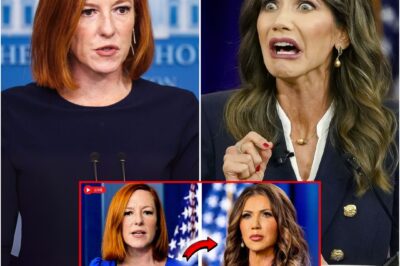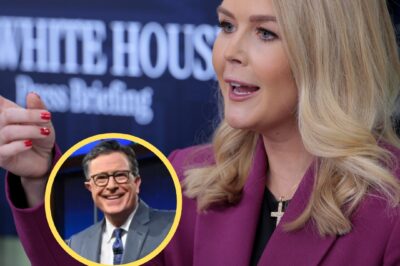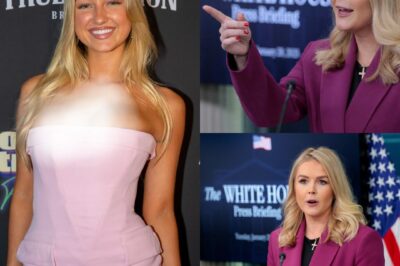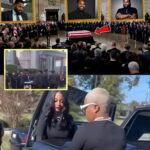Washington D.C. — A heated on-air exchange between NBC’s veteran White House correspondent Peter Alexander and Republican National Committee spokesperson Karoline Leavitt has sparked major media buzz, with unexpected fallout catching many by surprise.
The confrontation occurred during a recent appearance on NBC’s “Meet the Press,” where Leavitt and Alexander clashed during a discussion about the upcoming U.S. elections and the media’s role in political narratives. Tensions escalated when Leavitt criticized mainstream media outlets, including NBC, accusing them of bias against former President Donald Trump.
Peter Alexander, known for his composed and professional demeanor, pushed back strongly against Leavitt’s claims, defending the network’s journalistic integrity. The back-and-forth quickly gained traction online, with clips from the segment circulating widely on social media, drawing both praise and criticism from viewers depending on their political stance.
Sources close to NBC revealed that Alexander was “taken aback” by the intensity of the exchange, particularly by the personal tone Leavitt adopted during the conversation. A network insider stated, “Peter has handled high-pressure interviews for years, but this exchange was particularly sharp and personal, something he hasn’t experienced at this level before.”
Following the viral clip, Peter Alexander was also reportedly subjected to a surge of online attacks from political activists, a phenomenon increasingly common in today’s hyper-polarized media environment. Several public figures and journalists expressed support for Alexander, emphasizing the importance of civility in public discourse.
Meanwhile, Karoline Leavitt celebrated the moment on social media, reposting clips of the interview and gaining support from conservative circles who viewed her performance as a bold challenge to mainstream narratives.
NBC News has not issued any formal statement about the exchange, and Peter Alexander has continued his regular reporting duties. However, media analysts note that this episode reflects the growing hostility in political media spaces and the increasingly difficult role reporters face in navigating partisan interviews.
The heated exchange is likely to fuel further debate about media bias, political communication, and the personal toll public-facing journalists endure in the current political climate.
News
Caught Off Guard! Jen Psaki Drops a Photo B0mbshell That Leaves Kristi Noem Frozen on Air
It was the kind of silence that only happens on Capitol Hill when someone realizes they’ve been cornered. The kind…
🎭 Colbert’s Worst Nightmare? Karoline Leavitt Crashes the Show and Sparks Unscripted Meltdown on Live TV!
The Ed Sullivan Theater crackled with electricity on the night that political commentator Karoline Leavitt faced off with late-night host…
🧩Presidential Puzzle: How Karoline Leavitt’s Husband Is Tied to a Former Commander-in-Chief
The real estate developer shared his plans to own a sports team DONALD Trump’s press secretary Karoline Leavitt has a…
Karoline Leavitt on the Edge? Sydney Thomas Sends Shockwaves with Bold Offer to End Billionaire Drama!
Fans are clearly loving the idea VIRAL boxing ring girl Sydney Thomas has offered to replace White House Press Secretary…
No Mercy! Karoline Leavitt’s Scorching Words Shut Down ‘The View’ in Live Showdown 💣📺
Karoline Leavitt Confronts Viral Mockery—And Walks Through It with the Poise of a Queen on Her Royal Tour It all…
Silent Power! Karoline Leavitt Shuts Down Explosive Media Rumors Without Saying a Word 🔥
Karoline Leavitt Confronts Viral Mockery—And Walks Through It with the Poise of a Queen on Her Royal Tour It all…
End of content
No more pages to load









